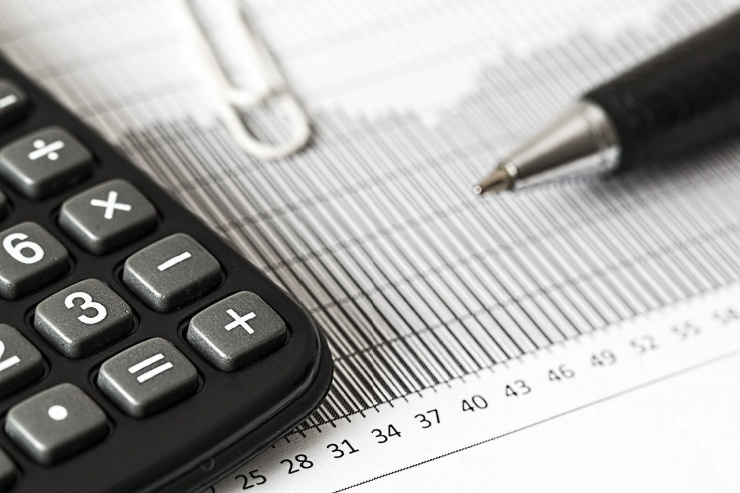Even if you didn’t mean to become a business owner, once you start making money from your blog, that’s what you are. And there are a few responsibilities that all businesses share, one of which is keeping proper business records.
If that sounds awful, the good news is it’s not at all. With a very simple system you can keep all the records you need for a blogging business, then take it a step further if you need or want to.
A Very Simple Accounting System

At the heart of all accounting, from big business to the very small, good accounting simply means keeping track of where your money is coming from, where it’s going, and what it’s doing in the meantime.
All you need to get started with simple records is a notebook or ledger if you like pens and paper, or a spreadsheet if you prefer digital.
Have four columns and label them with Date, Item, Cost, Balance.
Date and Item are obvious. What did you buy and when? The other use for the Item column is to list where income comes from, such as sales or commissions.
The next two columns are also self-explanatory: Cost is the expense or the income amount, and the Balance is what’s left in your account. You’ll add or subtract your cost from your balance to keep a running total.
When you’re first setting up your system, use your bank account statement to get an accurate starting balance. Don’t forget to record automatic payments, direct debits and the like, from your spreadsheet or notebook. Managing your business transactions is a lot easier if you keep a separate bank account.
This really is a quite simple method, but when all you need is a straightforward income and expense record, it’ll get you started. Bookkeeping and accounting can get a lot more complex, which is why professionals are well paid and respected.
If you find you enjoy digging into figures and finding patterns in money behaviour, you could consider taking an accounting course. You can even learn accounting online, so you don’t have to stop blogging to expand your knowledge.
Analysing Your Numbers

When you’ve gathered some figures to work with, say over a month or two, take a few moments to understand what they’re telling you. This is where accounting really shows its strength.
If you also keep a track of the time spent on various activities (such as photography, writing, social media, engaging with clients or readers) alongside your basic figures, you will see how you’re spending your time as well as your money.
With money, check your item list to see what you’re spending on various things and what your income is for different activities. With those details, you can channel your energy into the areas of your blogging life that are most rewarding financially. Since bloggers can earn money from several different channels, whether through sponsorships and collaborations, affiliations, or direct sales of their own products, tracking income streams and expenses can really boost your profits.
On the flip side, you can also see which tasks are time-sinks for little return. This is powerful knowledge as it means you can choose your blog’s direction from an informed position. You’re the boss, and it feels good.
See Pitfalls and Potholes Before They Swallow You

With regular bookkeeping, you start to anticipate income and expenses. Over time, you can predict the slack months, the busy times, and the regular expenses.
With that knowledge, you can plan, organise your schedule, set up automatic payments, shop around for better deals or hunt down more profitable collaborations in good time to plug any gaps. You’ll know when you need to put extra aside because a bill is coming up, and this can include taxes if you’re making a full-time income.
The more you know about accounting and bookkeeping, the more you can profit. But if you’re looking for an additional income stream, getting qualified would also mean an extra professional income from helping others with their accounts.
*Collaborative post













































